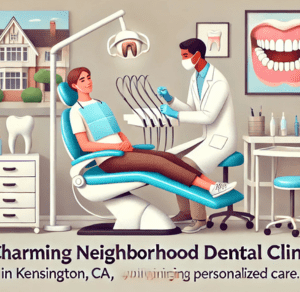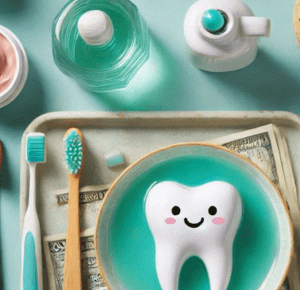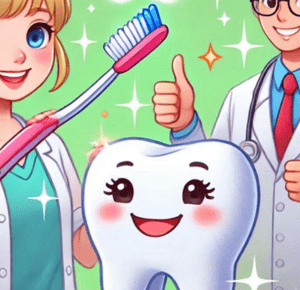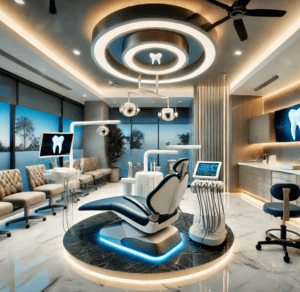
Overdentures, also known as overlay dentures, are a type of denture offered by the dentist in East Charlotte, NC. These are placed over existing teeth or dental implants. They are designed to provide a more secure and stable fit than traditional dentures, while also preserving the natural teeth and gums.
When are overdentures indicated?
Indications for overdentures include:
- Partially edentulous patients: Missing some teeth, but not all, in the upper or lower jaw.
- Unstable or loose dentures: Existing dentures that are ill-fitting, loose, or cause discomfort.
- Dental implants: Patients with dental implants seek a more secure and natural-looking smile.
- Tooth loss due to decay or trauma: Teeth lost due to decay, trauma, or other factors, and seeking a restoration option.
- Gum disease: Patients with advanced gum disease seek a treatment option that preserves remaining teeth.
- Dental erosion: Teeth worn down due to acid erosion, seeking a restoration option.
- Congenitally missing teeth: Patients born with missing teeth seek a restoration option.
- Failed fixed bridge: Failed fixed bridge or crown seeking a more secure option.
- Sensitivity or pain: Teeth sensitive or painful due to decay, cracks, or other factors.
- Aesthetic concerns: Seeking a more natural-looking smile or improved self-confidence.
- Masticatory difficulties: Difficulty chewing or speaking due to tooth loss or ill-fitting dentures.
- Systemic health: Patients with systemic health conditions, such as diabetes, seek a more secure and stable oral restoration.
What are the types of overdentures?
Types of overdentures include:
- Tooth-supported overdentures: Supported by natural teeth, typically using precision attachments or clasps.
- Implant-supported overdentures: Supported by dental implants, providing greater stability and retention.
- Hybrid overdentures: Combination of tooth and implant support, ideal for patients with limited natural teeth.
- Bar-retained overdentures: Supported by a metal bar attached to dental implants, providing stability and retention.
- Ball-retained overdentures: Supported by ball-shaped attachments on dental implants, providing secure retention.
- Magnetic overdentures: Supported by magnetic attachments on dental implants, providing easy removal and insertion.
- Telescopic overdentures: Supported by telescoping crowns on natural teeth or implants, providing stability and retention.
- Cast metal overdentures: Made from cast metal, providing strength and durability.
- Flexible overdentures: Made from flexible materials, ideal for patients with sensitive gums or teeth.
- Immediate overdentures: Placed immediately after tooth extraction, allowing for quick recovery and aesthetics.
How are overdentures fabricated?
The fabrication process of overdentures includes:
- Initial consultation: Discuss treatment options, goals, and expectations.
- Impressions: Take impressions of the mouth, including teeth, gums, and surrounding tissues.
- Model creation: Create a model of the mouth from the impressions.
- Diagnosis and planning: Evaluate the model, diagnose, and plan the overdenture treatment.
- Try-in: Create a try-in overdenture to assess fit, aesthetics, and function.
- Adjustments: Make necessary adjustments to the try-in overdenture.
- Final impression: Take a final impression with the try-in overdenture in place.
- Denture base fabrication: Create the overdenture base using the final impression.
- Teeth selection and arrangement: Select and arrange artificial teeth for aesthetics and function.
- Try-in and adjustments: Try in the overdenture and make final adjustments.
- Processing and finishing: Process and finish the overdenture, including polishing and quality control.
- Delivery and insertion: Deliver and insert the overdenture, making any necessary adjustments.
- Follow-up appointments: Schedule follow-up appointments for evaluation and adjustments.
Additional steps may be necessary depending on the type of overdenture, such as:
- Implant placement and healing
- Attachment or clip placement
- Metal framework fabrication
- Acrylic or ceramic processing
What are the benefits of overdentures?
Overdentures offer the following benefits:
- Improved stability and retention
- Preservation of natural teeth and gums
- Enhanced chewing and speaking ability
- Increased confidence and self-esteem
- Customizable to individual needs
Overdentures offer a unique solution for individuals seeking a more secure and natural-looking smile. With proper care and maintenance, overdentures can provide years of comfortable and confident wear. Consult a dental professional to determine if overdentures are right for you.






